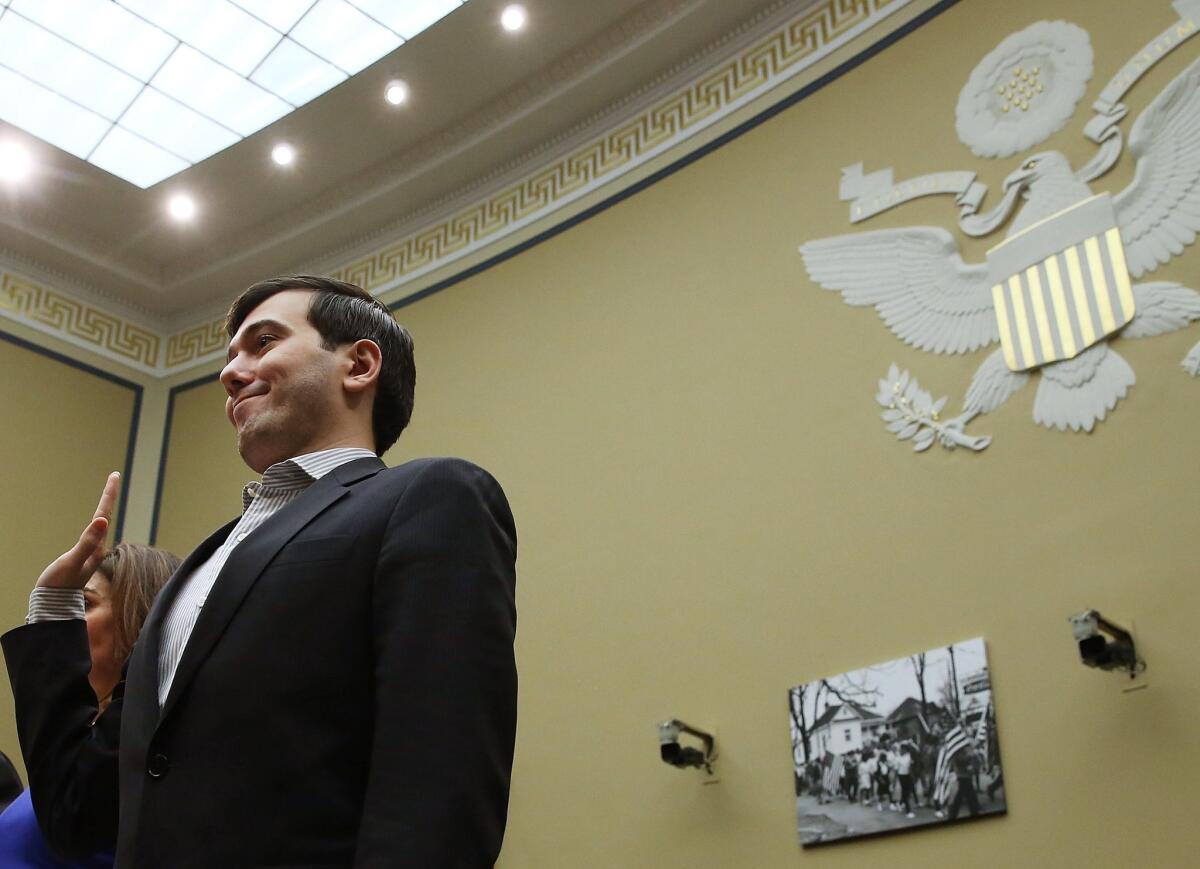How 4 drug companies rapidly raised prices on life-saving drugs

A U.S. Senate committee detailed in an investigative report Wednesday how drug companies were exploiting the market by acquiring decades-old crucial medicines and suddenly raising their prices astronomically.
“We must work to stop the bad actors who are driving up the prices of drugs that they did nothing to develop at the expense of patients just because, as one executive essentially said, ‘because I can,’ ” said Sen. Susan Collins, a Maine Republican, who chairs the Senate Aging Committee.
Over the last year, the committee investigated four drug companies, which it said had all used a similar business model that included egregious price hikes to maximize profits.
Here are some of the key findings in the committee’s 131-page report on those companies, which included Turing Pharmaceuticals, Retrophin Inc., Valeant Pharmaceuticals International and Rodelis Therapeutics.
The companies raised prices – not to fund research to discover new drugs – but to boost profits for executives and investors. In essence, they operated more like hedge funds than traditional pharmaceutical companies.
Turing, headed by executive Martin Shkreli, bought Daraprim, a 62-year-old medicine for a deadly parasitic disease, on Aug. 7, 2015, and raised the price overnight from $13.50 to $750 a pill.
When asked by investors about the expected revenues from the drug, Shkreli wrote, “I think it will be huge…. So 5,000 paying bottles at the new price is $375,000,000 – almost all of it is profit, and I think we will get 3 years of that or more. Should be a very handsome investment for all of us.”
The companies bought critical life-saving drugs made by one manufacturer and then worked to keep competitors out.
The committee found that Turing tried to keep other companies from making generic versions of Daraprim by restricting its distribution. Patients could not get the drug at the corner drug store. Instead, it was delivered by a specialty pharmacy. Turing executives explained that this kept competitors from acquiring enough of the medicine to perform studies that are required to prove they can make the same drug.
The company’s programs to help patients afford the drugs weren’t charities, but a way to increase profits on their monopolies.
The committee said that Valeant offered a program that covered the cost of co-pays for privately-insured patients because executives knew it would reduce patients’ “incentive to complain to the press about Valeant’s outrageous price increases.”
By increasing prices rapidly, but covering patients’ co-pays, the companies could still make big profits, the committee said.
They used the example of a drug priced at $100,000 that cost $10,000 to manufacture and distribute, leaving a potential profit of $90,000. If the company covered the patient’s $20,000 co-pay, the insurance company still paid $80,000 for the drug, resulting in a $70,000 profit for the company.
The patient assistance programs were a key method that Valeant used in raising the price of Cuprimine, used since 1956, and Syprine, developed in 1969, the committee said. Both drugs are used to treat Wilson disease, a rare condition in which the body cannot process copper.
Valeant raised the prices of Cuprimine and Syprine from about $500 to about $24,000 for a 30-day supply, the report said.
“The committee believes that these programs were driven not by altruism, but by Valeant’s desire to extract monopoly profits and then conceal that fact from the public,” the report said.
Valeant issued a statement saying it has established a “patient access pricing committee” and has “improved transparency” under a new executive team.
The companies raised prices on life-saving drugs that patients were desperate to get.
Committee members asked Michael Pearson, the former chief executive of Valeant, about this at an April hearing.
“In your thinking about this free market system you are describing, is it a factor … [that] … the absence of Syprine could lead to liver failure or a liver transplant or even death? Is that a factor?” asked Sen. Tim Kaine, a Virginia Democrat.
“It is,” Pearson responded.
The price increases are threatening the economic stability of American households and also the health of patients who can’t afford the drugs they need.
Shannon Weston told the committee how she was devastated in May 2015 when her 2-month-old daughter was diagnosed with toxoplasmosis, which can lead to blindness and death, and she learned the price of Daraprim.
“I was hopeless and depressed at the thought of what would happen to my perfect little girl if I was not able to help her,” Weston said. “I looked into any way I could think of to come up with the almost $360,000 necessary to treat my daughter for a year.”
The strategy was not limited to four companies.
The senators said they had evidence that other companies had used the same strategy to aggressively raise prices.
They called for policy changes to stop the practices, including improving transparency of prices, preventing the misuse of patient assistance programs and co-pay coupons, and allowing temporary imports of certain medicines to lower prices.
More to Read
Inside the business of entertainment
The Wide Shot brings you news, analysis and insights on everything from streaming wars to production — and what it all means for the future.
You may occasionally receive promotional content from the Los Angeles Times.











